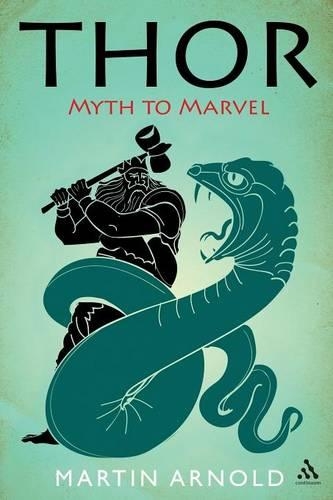
Thor: Myth to Marvel
(Paperback)
Available Formats
Publishing Details
Thor: Myth to Marvel
By (Author) Martin Arnold
Continuum Publishing Corporation
Continuum Publishing Corporation
2nd June 2011
United States
Classifications
Professional and Scholarly
Non Fiction
Folklore studies / Study of myth
398.20948
Physical Properties
Paperback
240
Width 156mm, Height 234mm
390g
Description
The myths of the Norse god Thor were preserved in the Icelandic Eddas, set down in the early Middle Ages. The bane of giants and trolls, Thor was worshipped as the last line of defence against all that threatened early Nordic society. Thor's significance persisted long after the Christian conversion and, in the mid-eighteenth century, Thor resumed a symbolic prominence among northern countries. Admired and adopted in Scandinavia and Germany, he became central to the rhetoric of national romanticism and to more belligerent assertions of nationalism. Resurrected in the latter part of the twentieth century in Marvel Magazine, Thor was further transformed into an articulation both of an anxious male sexuality and of a parallel nervousness regarding American foreign policy. Martin Arnold explores the extraordinary regard in which Thor has been held since medieval times and considers why and how his myth has been adopted, adapted and transformed.
Reviews
In this clear and lively book, Martin Arnold has demonstrated how closely the changing interpretations of a mythological figure through the generations are intertwined with major socio-political and cultural trends. I can heartily recommend it. -- Jacqueline Simpson, The Folklore Society, UK * Folklore *
A Times Literary Supplement Book of the Year, 2011 * Times Literary Supplement *
Like Arnolds other recent books Thor aims for accessibility, and its style is readable and inclusive, well-pitched to both early students of Norse and a popular readership. The first three chapters of the book alone provide students a valuable critical introduction to the Norse mythological Thor [T]his studys intrinsic scholarly value and relevance to contemporary popular culture is without question Thor: Myth to Marvel expands our viewpoint of this figure which can so casually be dismissed as simplistic in both its original meanings and later portrayals, inviting us to consider wider context and engage again with Thor and the continually recycled mythologies in which he plays a role. -- John D. Shafer, University of Nottingham, UK * European History Quarterly *
Author Bio
Martin Arnold is Professor of Scandinavian Literature at Hull University. He is the author of The Vikings (Continuum, 2006).
